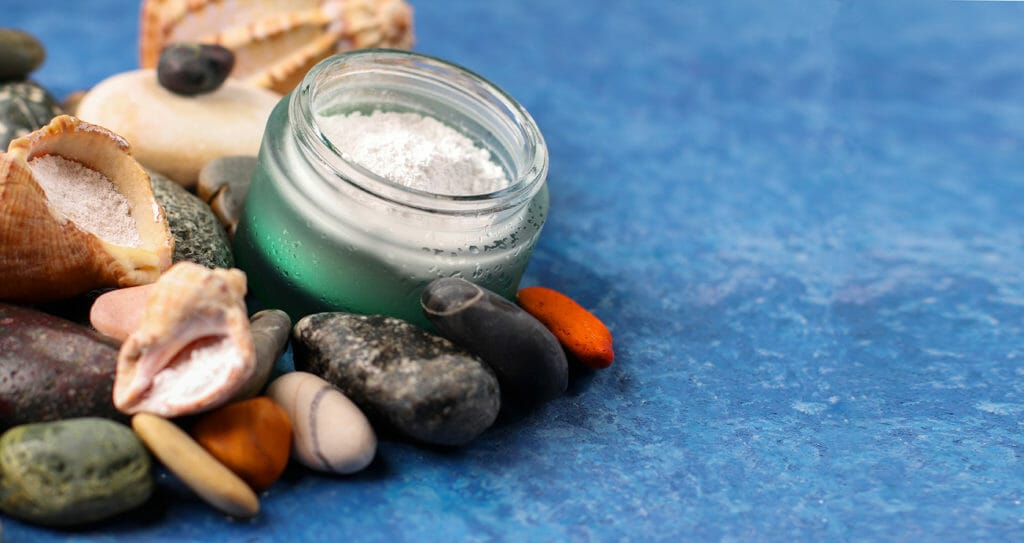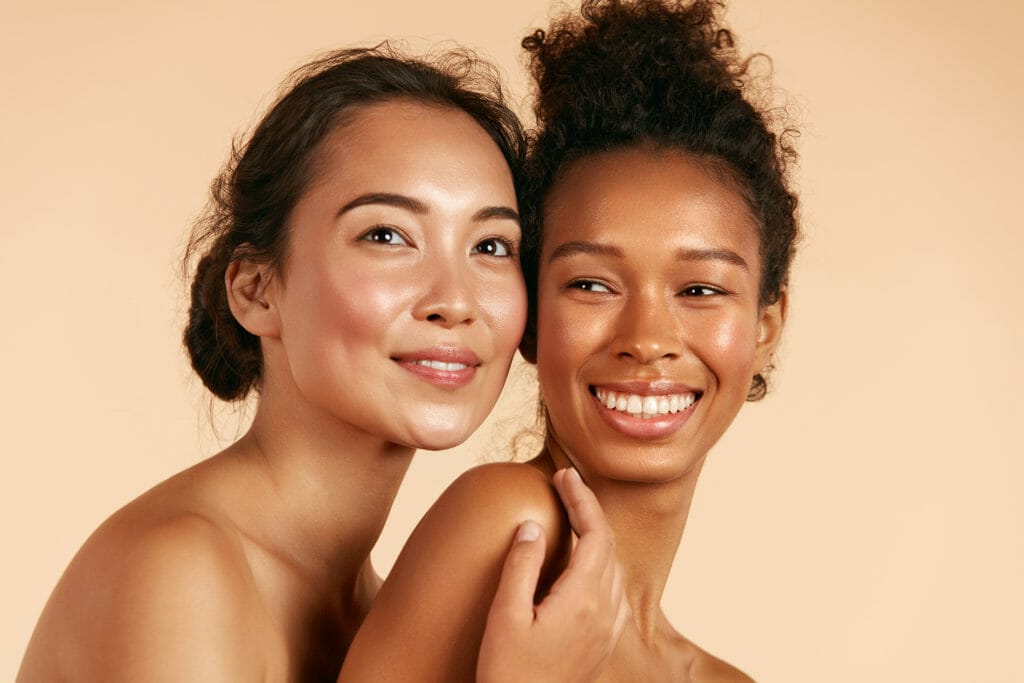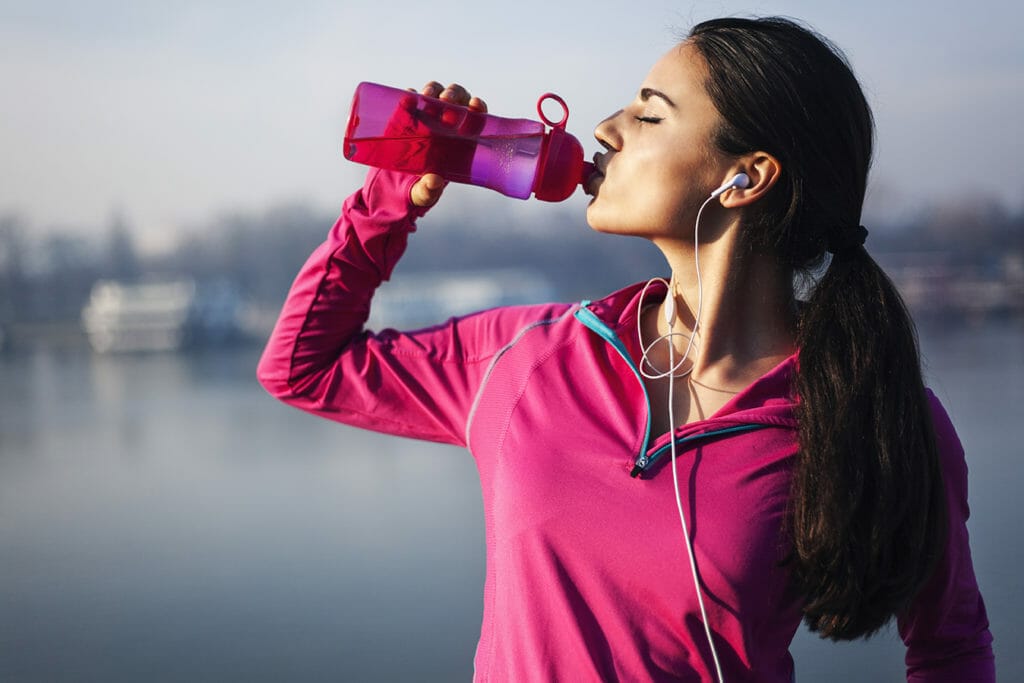Boosting Beauty from Within this Winter
Summer is over! We’re in the autumn months where typically the weather gets cooler with less sunshine, fewer daylight hours and the central heating kicks in. And with this combination of changes, for many people, the winter season causes chaos for skin health – dry, chapped lips, dry hair and skin breakouts – feeling like you’re going from sun-kissed to sallow in just a matter of weeks!

Hair Skin and Nails
Hair, skin and nails are all living tissue – well technically the visible part of your finger and toenails is hard, protective keratin protein so not “living” cells though nails do start out as living tissue in the nail bed itself. The same is true of your hair where the living cells are hidden in the hair follicle (or bulb) and shaft also surrounded by protective keratin protein. Skin is, of course, a visible living tissue and is made up of several layers of tissue (dermis), proteins like collagen, glands and blood vessels.
The keratin, collagen and elastin proteins that make up the majority of hair, skin and nail structures, provide their strength and elasticity and ward off wrinkles on the skin. However, these proteins can be the target of different lifestyle factors, including free radical attack from UVA and UVB exposure from the sun, smoking and drinking alcohol, dehydration, as well as ageing.
We know that what we eat supports the quality of structural proteins throughout the body, as well as cellular health, so it figures that what you eat, as well as lifestyle changes, is going to support the health and growth of hair, skin and nails.
Here are some top nutrients and tips to support ensure lustrous hair, strong nails and glowing skin this winter:

Collagen
Collagen is the most abundant protein in the body found in skin, nails, blood vessels, joints, tendons, and even your gut. Unfortunately, your natural collagen production declines as you age. In fact, some studies find that collagen production decreases as much as 68% throughout your lifetime.[1] And decreased collagen production leads to a decrease in skin elasticity (causing fine lines and wrinkles), dry, damaged hair, decreased bone density and stiff joints (due to a decrease in healthy cartilage). Collagen supplements are hugely popular but getting the right type of collagen is crucial. The source is everything, and collagen supplements can be derived from bovine (cow) sources or fish. Marine collagen is a Type I collagen protein and has been shown to improve skin hydration, reduce fine lines and wrinkles around the eyes, as well as boost strong bones and reduce joint pain.[2],[3]
Vitamin C & E
These vitamins are well known for their antioxidant capacity, protecting cells, including skin cells, from oxidative stress, which in turn contributes to the formation of wrinkles. But vitamin C is so much more. It also contributes to collagen formation directly supporting skin elasticity.
Selenium, Zinc and Copper
These 3 minerals have super positive hair, skin and nail support properties. They all act as antioxidant support, activating enzymes that mop up free radicals thus protecting skin cells in particular from free radical attack. Copper is also vital for maintaining healthy and even hair and skin pigmentation – basically copper may stop (or at least slow down) hair from turning grey! Copper also contributes to the maintenance of connective tissues including collagen. Selenium and zinc (as well as biotin) are required for the metabolism of proteins contributing to the maintenance of healthy hair, nails and skin tissue.

Iodine
Iodine is crucial for regulating your skin’s moisture levels, as well as aiding the healing of scars and cuts. Iodine also helps regulate the hormones that are responsible for acne breakouts. Basically, iodine helps in skin repair by supporting the regeneration of the lower layers of your skin – a true beauty from within nutrient!
Polyphenols – Pine Bark Extract, Grape Seed Extract and Resveratrol
Dietary polyphenols (a group of around 4000 antioxidants but prevalent in pine bark and grapeseed extracts) have gained considerable attention for the prevention of UV-induced skin photo-damage including the risk of skin cancer. In fact, polyphenols may act as a natural sunscreen reducing inflammation and oxidative stress in the skin. So eating a diet rich in polyphenols, including green tea, dark chocolate (in moderation!) and many different vegetables and fruits, may help prevent your skin from prematurely ageing.[4],[5]
Hyaluronic acid
Hyaluronic acid is an important component of collagen proteins and has been shown to support the viscoelasticity of skin, i.e. prevents wrinkle formation. When skin is damaged by free radicals it becomes inflamed and the cells in the dermis stop producing as much hyaluronic acid, so combining hyaluronic acid with antioxidant nutrients like vitamins C and E provide a powerful skin-protecting combination.
Astaxanthin
Astaxanthin is another super powerful antioxidant from the carotenoid family. It’s found in certain foods, including salmon where its red colour gives salmon its traditional pink hue. Astaxanthin is 1000s of times more powerful than other carotenoids like lycopene and beta-carotene and has been shown to improve skin and hair dryness, as well as protecting the skin against free radicals and sun damage especially crow’s feet wrinkles that form around the eyes.[6],[7],[8]
All these nutrients can be found in a wide and varied plant-based diet or can be taken combined in convenient supplement formulations alongside following our top lifestyle tips to support healthy hair, skin and nails this winter.

Stay hydrated
Moisturising the skin with creams, oils or serums, may help keep the skin plump but water – which makes up 64% of our skin – is actually the key to proper skin hydration. Water plumps the skin, encourages collagen production and flushes toxins (including acne-causing ones) from our bodies. If you’re not drinking the recommended 2 litres of water (or 6-8 glasses) every day, your skin will appear dull and more likely to increase the look of fine lines and wrinkles.
Eat well
You may feel like hunkering down in the winter months and increase the carbohydrates but there’s a huge connection between gut and skin health. Tackle dry skin by enjoying a daily intake of healthy fats including walnuts, avocados and olive oil and ensure to eat plenty of different vegetables through the weeks. A probiotic supplement may provide that extra gut health support through the winter month.
Exfoliate
When your skin feels dry, it’s normal to tackle this with a rich moisturising treatment. But if you’re not exfoliating too, you’re likely to breakout. Make sure you’re gently exfoliating the skin with a mild scrub or exfoliating sponge (experts recommend that you do this 2-3 times a week) to get rid of any build-up; a build-up of dead skin cells will clog your pores and cause blemishes.
Get a humidifier
Humidifiers maximise the amount of water in the air helping to prevent your skin from drying out when the central heating is on full blast.
Protect your skin from UV rays
Harmful UV rays are present throughout the year – even during the winter months. Whilst there are fewer UVB (short wave ultraviolet) rays in winter, levels of UVA (long wave ultraviolet) – which penetrate the skin’s deepest layers – are still significant enough to cause damage during this time. Use moisturisers with natural SPF to help prevent sun damage to your skin.

Dr Elisabeth Philipps PhD BSc (Hons) BSc Nutr Med AFMCP
Dr Elisabeth Philipps is a clinical neuroscientist and functional medicine practitioner and runs a health consultancy specialising in brain health, the endocannabinoid system and phytocannabinoids including C*B*D and medicinal cannabis. She regularly presents at conferences and events and provides expert opinion for the national press, specialist healthcare publications and health companies. You can connect with Elisabeth via:
www.drelisabethphilipps.com | instagram – @drelisabethphilipps | Twitter – @drphilipps | Linked In – Dr Elisabeth Philipps
References
[1] https://www.ncbi.nlm.nih.gov/pmc/articles/PMC16
[2] https://www.ncbi.nlm.nih.gov/pmc/articles/PMC6835901/
[3] https://www.ncbi.nlm.nih.gov/books/NBK21582
[4] https://www.ncbi.nlm.nih.gov/pubmed/22070679
[5] http://pubs.acs.org/doi/abs/10.1021/jf804025c
[6] Tominaga K, Hongo N, Karato M, Yamashita E. Cosmetic benefits of astaxanthin on humans subjects. Acta Biochim Pol. 2012;59(1):43-47.
[7] Davinelli S, Nielsen ME, Scapagnini G. Astaxanthin in skin health, repair, and disease: a comprehensive review. Nutrients. 2018;10(4):522
[8] Ito N, Seki S, Ueda F. The protective role of astaxanthin for UV-induced skin deterioration in healthy people-a randomized, double-blind, placebo-controlled trial. Nutrients. 2018;10(7):817.







